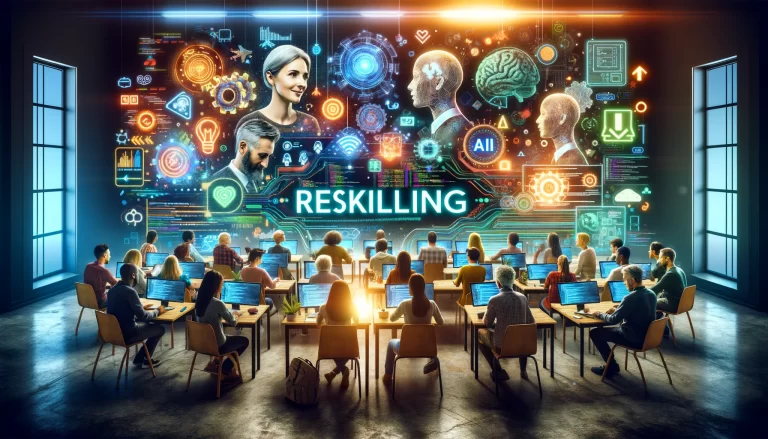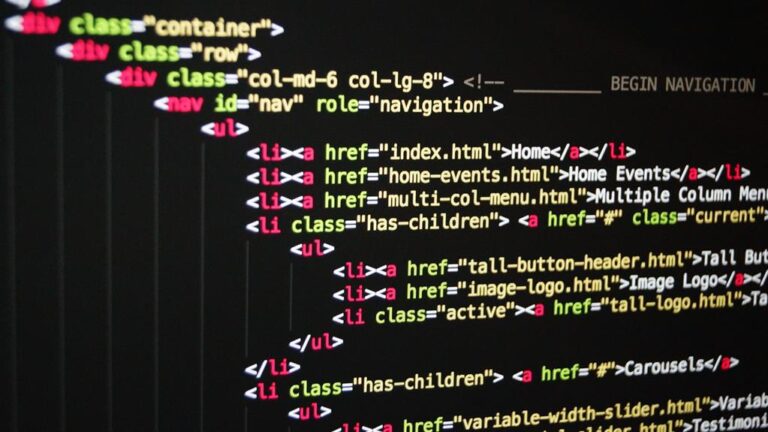In the ever-evolving landscape of work, where artificial intelligence (AI) is reshaping the terrain, I've found that staying relevant is akin to planting seeds for a bountiful future harvest. As someone who craves liberation from the constraints of outdated skill sets, I'm keenly aware that I must chart my own path to empowerment. To thrive in AI-driven careers, I've embraced three essential upskilling strategies. First, I identify future-proof skills that are likely to remain in demand. Next, I engage in continuous learning to stay ahead of the curve. And finally, I leverage online platforms to access knowledge and training tailored to the digital age. These strategies are my toolkit for navigating the dynamic world of AI with confidence and autonomy.
Identify Future-Proof Skills
In preparing for an AI-driven future, I've pinpointed several skills that are vital to remain relevant and adaptable in the evolving job market. Cross-disciplinary expertise tops this list, as the fusion of different fields can spawn innovative solutions and make one resilient to the shifts in demand. I don't just see this as a way to enhance my career portfolio; it's also a liberating path that breaks the shackles of conventional job roles, pushing boundaries into new realms of discovery and innovation.
The strategy here is to identify the intersections of technology with other sectors. I've analyzed trends and noted that knowledge in data science, when coupled with fields such as healthcare or environmental science, can be particularly potent. It's not just about mastering one skillset anymore, but rather about how different domains of knowledge can interact to create a holistic understanding.
Moreover, ethical consideration is an indispensable skill in this context. AI's capabilities are advancing rapidly, and with that comes a responsibility to ensure that these technologies are used in ways that benefit society as a whole. I'm honing my ability to foresee potential ethical dilemmas and to contribute to the development of AI in a manner that aligns with human values. This, I believe, not only safeguards my role in a future workforce but also aligns with a deeper purpose of advocating for a tech landscape that upholds our collective well-being.
Engage in Continuous Learning
My career's longevity in an AI-driven landscape hinges on my commitment to continuous learning and skill adaptation. Embracing an adaptive mindset is not just a necessity but a strategic advantage in a world where technological evolution is the norm. To stay relevant, I've got to be agile and proactive in acquiring new knowledge and refining my skills. It's not about a single upskilling event; it's about weaving learning into the fabric of my daily life.
| Strategy | How it Supports Continuous Learning |
|---|---|
| Joining Learning Communities | Access to collective knowledge and peer motivation |
| Setting Personal Learning Milestones | A framework to measure progress and stay on track |
Integrating into learning communities provides me with a rich tapestry of insights and experiences from peers who are also navigating this transformative age. These communities offer a robust support system, fostering an environment where knowledge is shared, and innovative ideas are nurtured. They serve as a crucible for an adaptive mindset, allowing me to absorb diverse perspectives and accelerate my learning curve.
In parallel, setting personal learning milestones gives my educational pursuits direction and structure. Strategic and analytical planning of these milestones ensures I can keep pace with the rapid advancements in AI. It also allows me to systematically build and upgrade my skill set, ensuring that my professional development is not left to chance.
Leverage Online Platforms
Harnessing the power of numerous online platforms, I've expanded my technical expertise and stayed abreast of AI trends. The strategic use of these platforms has been pivotal in my upskilling journey, allowing me to dissect the complexities of AI with a precision that only comes from continuous, targeted learning. Virtual workshops, in particular, have been a goldmine for deepening my understanding of AI algorithms and their real-world applications.
Engaging in these workshops, I've been exposed to a diversity of thought and practice that is essential for anyone looking to liberate themselves from the constraints of outdated skills. This diverse exposure is especially crucial in a field as dynamic as AI, where today's innovation could be tomorrow's standard. The insights gained from industry experts and academic leaders through these virtual sessions are invaluable, providing me with a strategic edge.
Peer collaboration, another facet of online platforms, has enriched my learning experience significantly. It's one thing to learn theory, but to apply that theory in collaboration with peers from around the globe has sharpened my practical skills and analytical thinking. Through shared projects and discussions, I've gained multiple perspectives on problem-solving, which is critical in AI where there is often more than one solution to a problem.
The analytical, strategic mindset I've fostered through these platforms has empowered me to be proactive in my career development. By leveraging online resources effectively, I'm not just keeping pace with AI advancements—I'm positioning myself at the forefront of innovation, ready to tackle new challenges with confidence and a liberated spirit.
Frequently Asked Questions
How Can One Measure the Effectiveness of Their Upskilling Strategy in an Ai-Driven Career?
To gauge my upskilling's impact in AI, I'd set clear AI benchmarks and rigorously track progress. It's about analyzing skill growth against evolving AI demands. I'm strategic, using data to refine my learning path. This analytical approach ensures I'm not just keeping pace but staying ahead. It's about breaking free from skill stagnation and embracing continuous learning as a tool for empowerment in a rapidly advancing AI landscape.
What Are the Financial Implications of Upskilling for AI Careers, and Are There Any Cost-Effective Methods for Individuals on a Tight Budget?
Upskilling for AI isn't cheap, but I'm strategizing to minimize costs. I'm considering education loans for formal courses and scouting for scholarship opportunities that'll ease the financial load. It's analytical thinking; I'm weighing long-term gains against present investments. I'm seeking liberation from financial constraints, ensuring that my budget doesn't restrict my growth in this AI-powered era. I'm set on finding a path that balances cost with the invaluable return of knowledge.
Can Upskilling for Ai-Driven Careers Lead to Opportunities in Industries Outside of Tech, and What Examples Are There?
Oh, absolutely! Upskilling for AI isn't just for tech wizards; it's a golden ticket to diverse realms. I've seen folks leap into policy-making, crafting AI legislation with finesse. They're like cultural chameleons, adapting to various industries with ease. Take healthcare—AI skills are revolutionizing patient care. Or in finance, where they're predicting market trends. It's a strategic move, blending AI know-how with sector-specific insight. It's analytical acumen, opening doors everywhere.
How Does One Balance the Time Commitment Required for Upskilling With Full-Time Work and Personal Responsibilities?
Balancing upskilling with my full-time job and personal life demands strategic time management. I've embraced prioritization techniques, like the Eisenhower Matrix, to categorize tasks by urgency and importance. This way, I'm not just busy, but productive, focusing on what'll truly advance my skill set. It's about making smart choices daily that align with my long-term goals, ensuring each step I take is towards personal and professional liberation.
Are There Any Specific Soft Skills That Complement Technical AI Skills, and How Can One Develop Them?
Absolutely, AI Empathy and Collaborative Communication are like the bread and butter alongside technical chops in AI. To develop these, I'm diving deep into emotional intelligence and honing my ability to work in diverse teams. I analyze case studies and actively seek feedback to sharpen my understanding. It's a strategic play to be both technically adept and interpersonally agile, as it liberates me to navigate the AI landscape more effectively.



